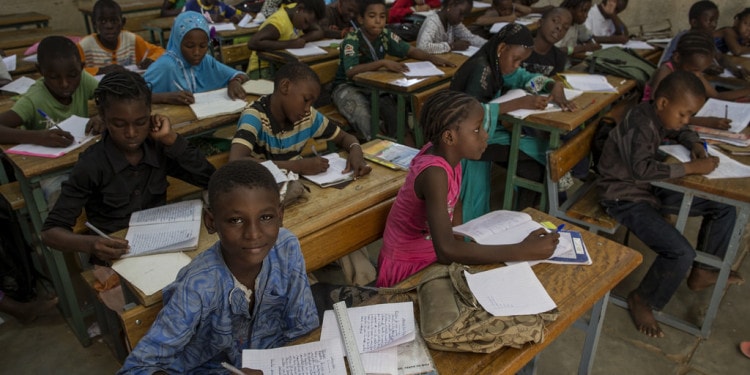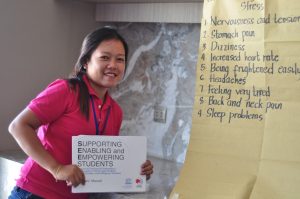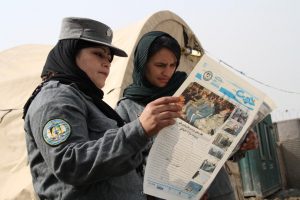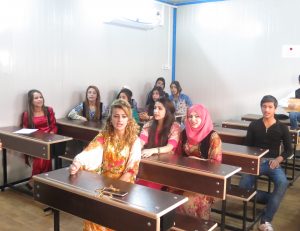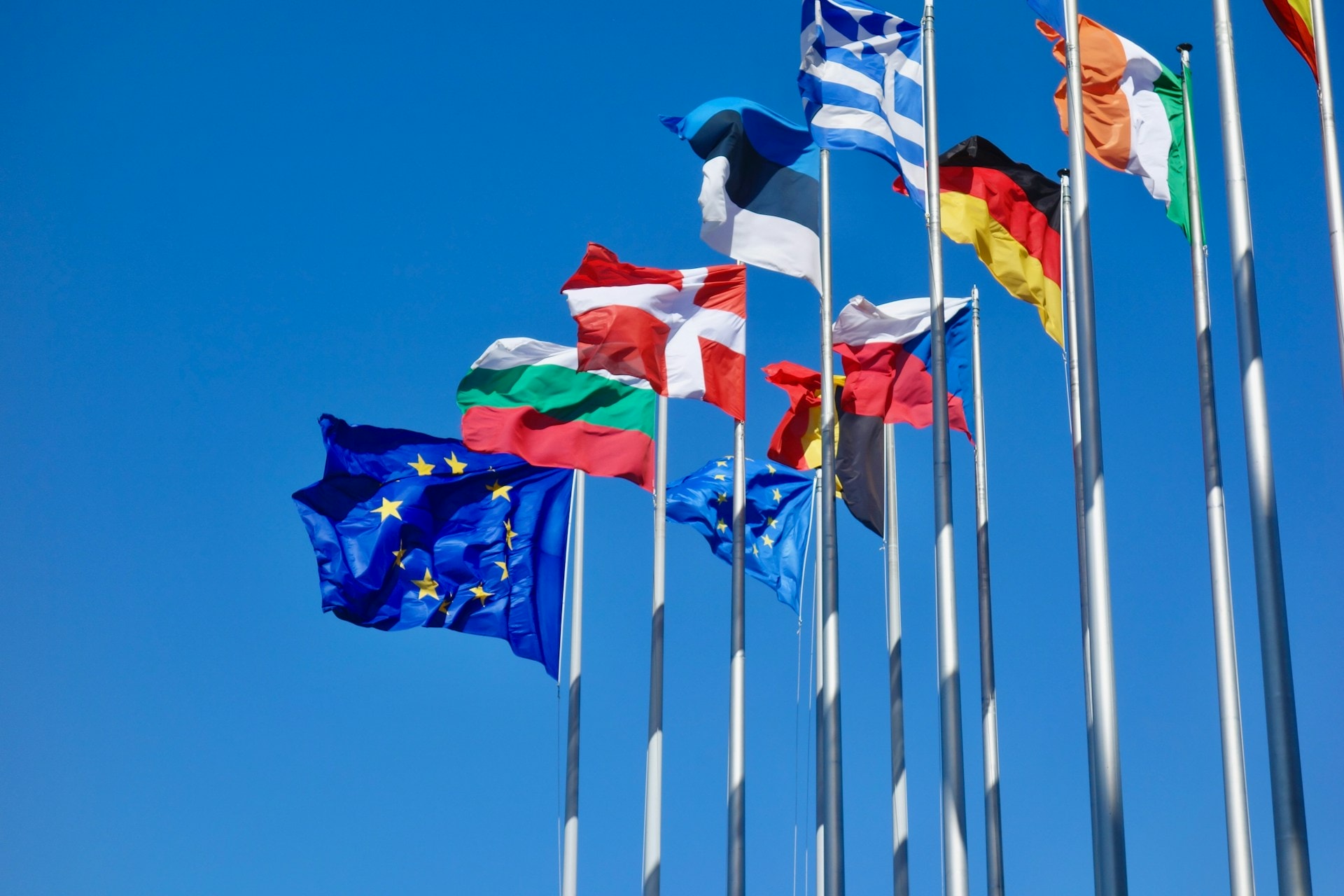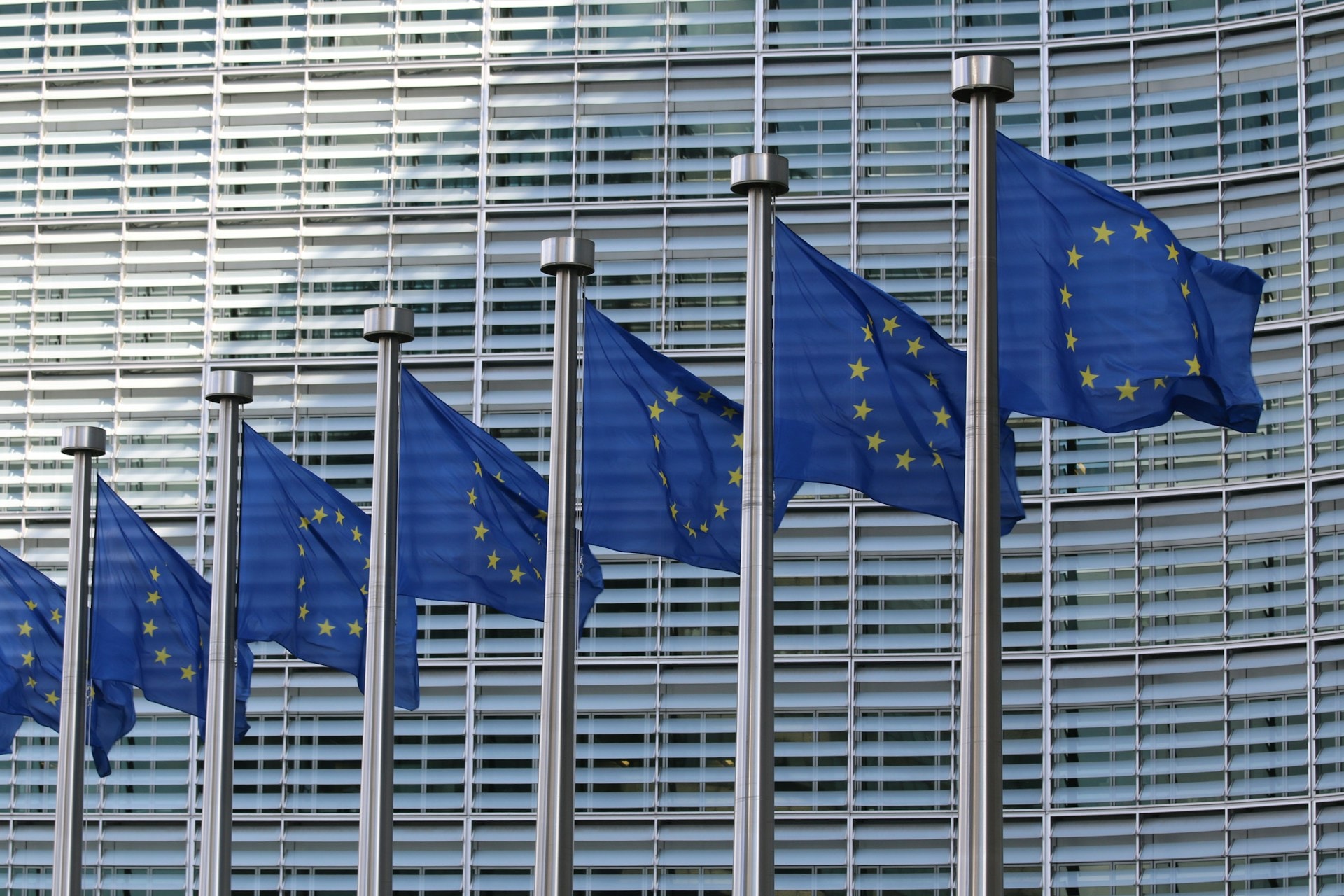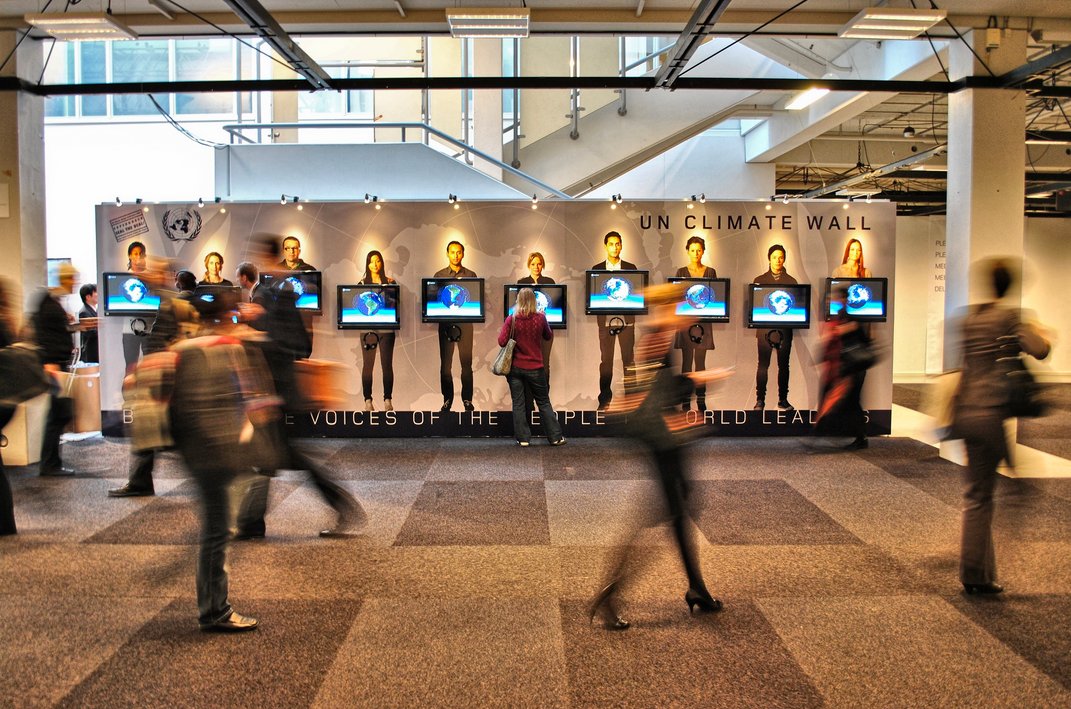SDG4: Ensure Inclusive and Equitable Quality Education and Promote Lifelong Learning Opportunities for all
The 2030 Agenda for Sustainable Development sets an ambitious, aspirational and universal agenda to eradicate poverty through sustainable development by 2030, to bolster lasting peace and to craft new relations of harmony with the planet.
Adopted in September 2015, the global community recognised that education was essential for the success of the whole agenda.
The new Education 2030 Agenda is expressed in one goal – Sustainable Development Goal 4 – which aims to “ensure inclusive and equitable quality education and promote lifelong learning opportunities for all“. UNESCO, as the sole UN agency mandated to cover all aspects of education, has been given a special role to lead the work towards achieving this goal.
Education is the most powerful weapon with which you can change the world.
-Former South African President Nelson Mandela, 16 July 2003
IN THE PHOTO:Secondary school children traumatised by Typhoon Haiyan/Yolanda are benefiting from long-term rehabilitation as part of a UNESCO teacher training project. PHOTO CREDIT: UNESCO
The new agenda is based on the right to quality education at all ages. The roadmap to achieve the new agenda is the Education 2030 Incheon Declaration and Framework for Action, which grew out of the work of the global education movement set in motion in 1990 in Jomtien, Thailand. Adopted shortly after the Sustainable Development Goals were endorsed, the Framework for Action outlines how UNESCO and its global partners can translate commitments into action.
Some of the most ambitious commitments go beyond ensuring universal primary education, as in the previous international agenda. This new agenda features commitments to ensure universal secondary and pre-primary education, technical and vocational skills or higher education for decent work, gender equality in education, literacy, qualified teachers and also education for sustainable development as well as global citizenship education to nurture the values, knowledge, and skills we need for 21st century citizenship.
The Global Education 2030 Agenda goes beyond past attempts to ensure access to basic education, as set out in the Education for All goals and the education-related Millennium Development Goal 2 of 2000-2015. It includes commitments which:
- reach from early childhood learning to youth and adult education and training;
- emphasise the acquisition of competencies relevant for work, for social and civic life;
- underlines the importance of global citizenship education in a plural and interdependent world;
- focus on inclusion, equity and gender equality;
- and aims to ensure quality learning outcomes for all, throughout their lives.
The main responsibility for implementing the agenda lies with governments, with UNESCO and partners providing support through the provision of technical advice, national and regional capacity development, coordination and monitoring.
Related Article: “MEETING EDUCATION FOR ALL (EFA): AN INSIGHT INTO THE CASE OF TANZANIA“
Sustainable Development Goal 4 has 10 targets encompassing many different aspects of education but there are also education-related targets of several of the other 17 Sustainable Development Goals.
It is based on four main pillars:
- Lifelong learning: which goes beyond basic primary education. It commits to ensuring pre-primary education as well as post-basic learning opportunities through the development of vocational skills or through university studies.
- Equity and inclusion, to address all forms of marginalisation and inequality in education access, participation, retention and completion, including a specific focus on gender, equality, leaving no one behind.
- Ensure access and effective learning: learners must acquire basic competencies.
- Quality and relevant learning: for both enabling access to decent work and encouraging global citizenship.
Education for decent work and global citizenship
Since its foundation in 1945, UNESCO has always had a holistic and humanist vision of education within and beyond the formal classroom setting, and this approach is consolidated in SDG4 which puts forward education as a human right and a public good.
UNESCO’s role is as a “laboratory of ideas”, from developing global guidance on emerging issues and trends in education to harnessing mobile technology to teach literacy skills in Nigeria. UNESCO is well placed to take best practice from around the world to help build capacity for educational achievement. For example, UNESCO runs the largest literacy programme in Afghanistan, reaching over 600,000 beneficiaries across the country, the majority women. Supporting educators and educational systems is vital following disasters, and UNESCO has opened secondary schools for Syrian refugees in Iraq, trained teachers in the Philippines following the 2013 Haiyan typhoon and advised the Ecuador government on how to ensure education continues in the aftermath of the 2016 earthquake.
IN THE PHOTO: Police officers who have turned around their lives through the UNESCO Literacy Empowerment for Afghan Police (LEAP) programme. PHOTO CREDIT: UNESCO
I felt happy and relieved to be here away from the gun shots. I learned a lot too: I can now read and write well, considering that I wasn’t able to before, and I’m so excited about what I can do with that knowledge! I also met so many new friends, and we’re inseparable now. In the future, I want to be a teacher for children right here in the camp, if we stay that long.
-Jana, aged 8, Zaatari refugee camp in Jordan which is home to 80,000 people
UNESCO’s other main strength lies in its capacity to draw together international partners to share success stories of education policy and set international standards. UNESCO recently released the first ever study into the effects of homophobic bullying on educational achievement in the classroom and last year published a teachers’ guide to help to prevent violent extremism through dialogue. These are just a few examples of how UNESCO has recently promoted best practice in education for sustainable development and global citizenship. In our increasingly interconnected and complex world, UNESCO also plays a vital role both defending the rights of minority languages through promoting teaching in the learner’s mother tongue, whilst also ensuring that higher education qualifications are recognised when a person lives outside his or her country.
The common thread through all of UNESCO’s work is bolstering countries’ capacities to help individuals and communities to develop the education and skills needed for responsible global citizenship, decent work and informed decision-making. Valuing teachers and ensuring inclusive teaching materials is key to all of this work.
It has been said that knowledge is power. We need to strengthen education systems so that young people can benefit from cultural diversity, and not be victimised by those who exploit differences.
-Secretary-General Ban Ki-moon — to Security Council meeting on Intercultural Dialogue for Peace and Security 2010
The global challenges facing education
There are many global challenges facing this new agenda: demographic, security, economic and environmental.
Whilst most regions can shift their focus away from primary to post-primary education, due to the drop in fertility rates, Africa must continue to expand access to all levels of education. In all regions, the population is aging which poses challenges for adults’ up-skilling or reskilling. These different demographic challenges will affect how countries work towards achieving quality lifelong learning for all in their own national context.
Global insecurity means that 1 in 4 people, more than 1.5 billion, live in conflict-affected, and there are 214 million migrants internationally, many of whom fall through the cracks of educational systems. Our response to these vulnerable individuals must be global so the burden does not fall on a few neighbouring countries.
For a full mindmap containing additional related articles and photos, visit #SDGStories
In 2015, some 886 million people continued to live on less than $1.25 USD a day; the majority of those living in poverty are women and girls. SDG4 must focus on those who have been left behind as they face multiple barriers to education: economic, political and even cultural. There is strong evidence in the development community that educating girls and women is a huge driver of development.
In addition, environmental degradation has reached alarming levels and there is increasing consensus that the current model of economic growth is not sustainable. The Paris Climate Change Agreement and the Education 2030 Agenda are interlocked. Without education that raises awareness of sustainable patterns of production and consumption and encourages active engagement in finding solutions, our planet risks facing an ever more grave crisis, setting back development progress which has already been made.
Reasons for hope
There are powerful reasons for hope. The expansion of technology is ushering in cost-effective and innovative ways of delivering both basic and higher education, as well as improving teacher training. Growth in open educational resources and free online courses by universities and institutions of technical and vocational education and training are dramatically changing education. How countries harness these technological advances for education will influence how policy-makers chart the way forward.
IN THE PHOTO: Students attend class at the newly opened Roj Awa Secondary School in Basirma Camp, Iraq PHOTO CREDIT: UNESCO Iraq
Furthermore, the growing importance of knowledge societies is having profound implications for the role of education as a determinant of economic growth and social development. Increasingly, a country’s ability to impart transversal skills, such as problem-solving and interpersonal skills, will determine the way it can respond to existing and emerging challenges. To be able to navigate today’s globalized society, countries must adopt lifelong learning strategies that ensure a full range of educational and training opportunities. The targets of SDG4 provide a basis for how to achieve this common good.
The concept of sustainable development emphasises a holistic, equitable and far-sighted approach which takes into consideration social, economic and environmental aims. Education plays a key role in changing attitudes and affecting behaviour.
What will it take to achieve this agenda?
The heart of Education 2030 lies at the country level and governments have the primary responsibility for successful implementation, follow-up and review. Given the interrelated challenges of today, education should be an integral part of National Sustainable Development Strategies, woven into existing national policies and making linkages with the other 16 SDGs. With this logic in mind, national coordination mechanisms need to go beyond just the Ministries of Education to include other Sectoral Ministries. Beyond the governmental sphere, other partners such as civil society organisations may be an integral link in the chain for achieving SDG4.
Follow-up and review of SDG4 should also build on the bedrock of existing in-country platforms. These mechanisms need to be rigorous and evidence-based. Reliable data should be broken down by income, gender, age, race migratory status, geographical location and other characteristics relevant to the national context, so we ensure that no one is left behind.
The full realisation of SDG4 requires significantly increased, innovative and well-targeted financing. The Incheon Declaration urged countries to allocate at least 15-20 percent of public expenditure to education. Governments can also better use existing resources, ensuring that those most in need are given priority.
Even still, there is an estimated financing gap of $39 billion between 2015-2030 in low and middle-income countries. Therefore, the decline in aid to education must be reversed, whilst existing aid can be harmonised. New cooperation pathways can be opened up, such as South-South partnerships and innovative financing from non-governmental sources.
We reaffirm that education is a public good, a fundamental human right and a basis for guaranteeing the realization of other rights. It is essential for peace, tolerance, human fulfilment and sustainable development. We recognize education as key to achieving full employment and poverty eradication. We will focus our efforts on access, equity and inclusion, quality and learning outcomes, within a lifelong learning approach.
-Paragraph 5, Incheon Declaration, May 2015 at the World Education Forum in Incheon, Republic of Korea
At the global level, UNESCO convenes a Steering Committee, with partners, to provide strategic guidance, make recommendations, advocate for adequate financing and monitor progress. It aims to ensure coordinated support to Member States and partners to achieve SDG 4. It is composed of 34 members representing a majority of Member States, as well as co-convening international agencies, regional organizations, teacher organizations and civil society networks.
The Sustainable Development Goals (SDGs) will remain just that – a set of goals – without accurate data that countries can use to monitor progress and develop evidence-based policies. Global monitoring of progress is carried out through the UNESCO Institute for Statistics (UIS) and the Global Education Monitoring Report (GEM).
The United Nations explicitly placed education at the heart of the agenda recognising that without education, none of the other goals can be achieved. At UNESCO, we endeavour to work with our Steering Committee partners, national governments and a broad community of stakeholders from community to global level to make quality, lifelong education a reality for all.
Recommended Reading: “THE BOTTOM TEN COUNTRIES FOR FEMALE EDUCATION”


